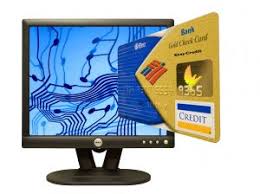Always keep your trading systems simple. Too much information at one time on your trading screen could confuse and delay your decision to trade.
Broker - A lot of Forex brokers are in business only to make money from yours. Read forums, blogs and chats around the net to get an unbiased opinion before you choose your broker.
Sample the Environment - It is important to remember that many registered and online trading agents have fictitious platforms which mirror the real-time, live platform clients register and trade on. It is not only advisable, but it is also actively encouraged to initially open a 'dummy' account where fictitious Forex trades can be undertaken that closely reflect what real trades may be like when they are eventually undertaken. Such platforms are designed to give those that are new to Forex a feel and an idea what real trades on live markets will be like when the decision is made to begin trading.
Buy low, Sell high - Forex trading does not involve the physical purchase of the currencies, but rather involves contracts for amount and exchange rate of currency pairs. The potential for profit comes from the fluctuations in the currency exchange market. Regular daily fluctuations in the value of one currency against another give a clear advantage over conventional stock market equities and instruments. See Trading Illustration Only
Manage Losing Positions - Trades will sometimes inevitably on occasion go against you. It is important to accept them as an inherent part of trading. Cut your losses and move on having learned from any mistakes made. Always remember however that you will not be able to trade without losing some positions. It is important to manage these well.
Patience - Do not over-trade your account. Good money management practice is important and will help with profitability. This will go a long way in helping you develop a strategy which fits with your personal trading capital. Operate a trailing stop loss policy say 15 to 20 pips behind the trade. Minimize your good trades as long as you are confident.
Flexible Mindset - Don't set yourself false targets and expectations. Experts will tell you trading is not an exact science and setting oneself unattainable targets will only lead to frustration and feeling of failure when these targets are not met. Always maintain an open mind. The market is a constantly changing environment tunes your mindset to understand this.
And lastly but definitely not least, it is most important for all market participants to remember that unique experiences and past performances do not guarantee future results. Trading results can vary in any combination of circumstances. If you do not have extra capital that you can afford to lose, you should not trade in the foreign exchange market.
Invest wisely and take advantage of the resources and technology available to you in the market.
Ladi Dairo: Equity Research Analyst.
Broker - A lot of Forex brokers are in business only to make money from yours. Read forums, blogs and chats around the net to get an unbiased opinion before you choose your broker.
Sample the Environment - It is important to remember that many registered and online trading agents have fictitious platforms which mirror the real-time, live platform clients register and trade on. It is not only advisable, but it is also actively encouraged to initially open a 'dummy' account where fictitious Forex trades can be undertaken that closely reflect what real trades may be like when they are eventually undertaken. Such platforms are designed to give those that are new to Forex a feel and an idea what real trades on live markets will be like when the decision is made to begin trading.
Buy low, Sell high - Forex trading does not involve the physical purchase of the currencies, but rather involves contracts for amount and exchange rate of currency pairs. The potential for profit comes from the fluctuations in the currency exchange market. Regular daily fluctuations in the value of one currency against another give a clear advantage over conventional stock market equities and instruments. See Trading Illustration Only
Manage Losing Positions - Trades will sometimes inevitably on occasion go against you. It is important to accept them as an inherent part of trading. Cut your losses and move on having learned from any mistakes made. Always remember however that you will not be able to trade without losing some positions. It is important to manage these well.
Patience - Do not over-trade your account. Good money management practice is important and will help with profitability. This will go a long way in helping you develop a strategy which fits with your personal trading capital. Operate a trailing stop loss policy say 15 to 20 pips behind the trade. Minimize your good trades as long as you are confident.
Flexible Mindset - Don't set yourself false targets and expectations. Experts will tell you trading is not an exact science and setting oneself unattainable targets will only lead to frustration and feeling of failure when these targets are not met. Always maintain an open mind. The market is a constantly changing environment tunes your mindset to understand this.
And lastly but definitely not least, it is most important for all market participants to remember that unique experiences and past performances do not guarantee future results. Trading results can vary in any combination of circumstances. If you do not have extra capital that you can afford to lose, you should not trade in the foreign exchange market.
Invest wisely and take advantage of the resources and technology available to you in the market.
Ladi Dairo: Equity Research Analyst.










0 comments:
Post a Comment